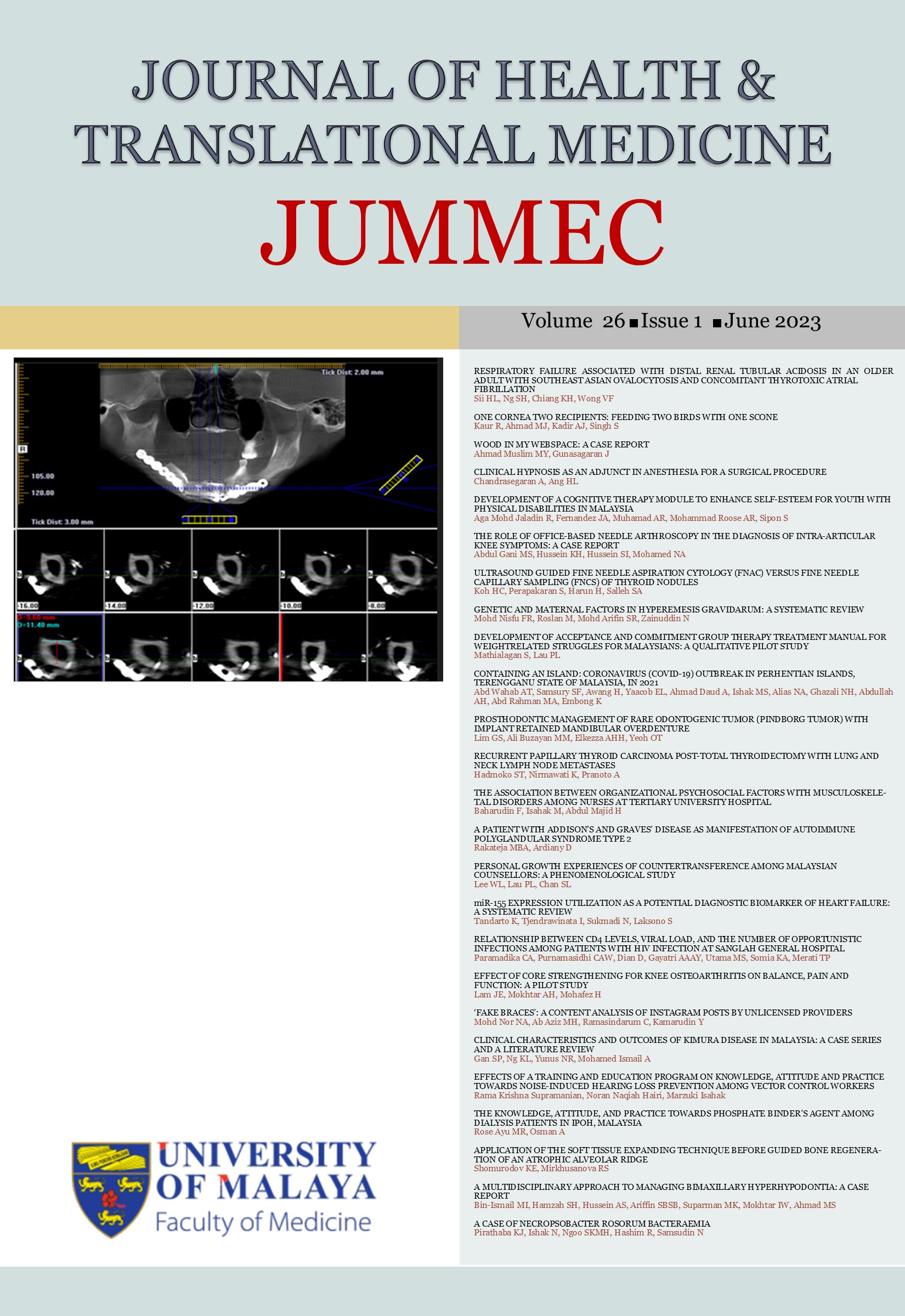THE KNOWLEDGE, ATTITUDE, AND PRACTICE TOWARDS PHOSPHATE BINDER’S AGENT AMONG DIALYSIS PATIENTS IN IPOH, MALAYSIA
Received 2022-02-03; Accepted 2023-01-31; Published 2023-04-21
DOI:
https://doi.org/10.22452/jummec.vol26no1.22Keywords:
phosphate binders’ medication, dialysis, KAP study, MalaysiaAbstract
The cross-sectional study was conducted among ESRD patients required haemodialysis in Ipoh aimed at determining their level of knowledge, attitude, and practice (KAP) towards drug phosphate binders. A total of 105 patients on phosphate binders’ medication participated in the study. The questionnaires on sociodemographic characteristics and KAP towards phosphate binder medication were used to obtain the data. In this study, most patients were aged 40 to 60 and slightly more women. Patients were generally highly knowledgeable about phosphate binders. Over 90% of respondents were aware of the importance of the medication and the need to follow the regimen. More 70% of the patients have a positive attitude toward medication. In terms of practice, most of patients take the medication daily (90.5%) and always taking it with meals (93.3%). The older patients aged more than 45 years old, married and not working patients had significantly better compliance to medication. In conclusion, most patients in this study have a good knowledge of phosphate binder medications, a high positive attitude and good adherence to a medication. There is still a need for a structured health education method and counselling session to improve the knowledge of patients, change an attitude of a specific group of patients and increase the treatment compliance focusing on a specific ethnic group, young, unmarried, and employed patients.
Downloads
Downloads
Published
Issue
Section
License
All authors agree that the article, if editorially accepted for publication, shall be licensed under the Creative Commons Attribution License 4.0 to allow others to freely access, copy and use research provided the author is correctly attributed, unless otherwise stated. All articles are available online without charge or other barriers to access. However, anyone wishing to reproduce large quantities of an article (250+) should inform the publisher. Any opinion expressed in the articles are those of the authors and do not reflect that of the University of Malaya, 50603 Kuala Lumpur, Malaysia.


